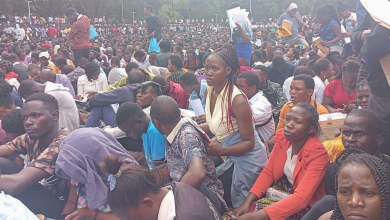Misrule ruins economies, public trust
Malawi is grappling with fiscal, legal, and governance failures that undermine public confidence, social cohesion and economic stability.
This reflects the cumulative impact of systemic mismanagement, governance lapses and ineffective legal and financial controls in public procurement and policy.
Glaringly, this points to non-compliance with public procurement standards and the lack of due diligence in contract awarding.
A recent case involved procurement of fertiliser from a foreign butchery and pharmacy with no core competency in agro-supply.
Such anomalies reflect lack of procurement integrity and violate core principles of transparency, value-for-money and risk mitigation promoted with international best practices and local laws.
S u c h c o n t r a c t u a l misallocations not only raise legal and ethical concerns, but also have costly implications on project outcomes as the intended public benefit is replaced by inefficiency, resource leakage and public disillusionment.
At worst, infrastructure and welfare projects delay, stall and get abandoned, eroding the social contract between the
and its citizens.
These procedural errors constitute tangible breaches of fiduciary duty with long-lasting socioeconomic impacts.
The Affordable Inputs Programme (AIP) has failed to meet to its policy goals to empower smallholder farmers, improve food security and reduce poverty due to untimely and inadequate supplies.
The ripple effects on domestic food security and pricing are inescapable, ba l looning inf lat i o n , malnutrition and poverty which can only worsen unless the National Food Reserves Agency procures enough grain to cushion the food-insecure population.
Simultaneously, the country continues to face debilitating forex shortage, which hinders the importation of fuel, medical supplies and industrial inputs.
This forex scarcity has increased inflationary pressure, industrial slump and business closures.
The country’s inflation rose from eight percent in 2020 to 30.7 this year, according to the Reserve Bank of Malawi’s latest Intelligence Market Report.
The economic disorder has intensified social instability, including rising crime rates and
mental stress. The Police recorded 153 suicide cases from January to March, up from 126 in the same period last year.
The strained public healthcare system has faced critical shortages of essential supplies due to fiscal mismanagement.
Public safety has also been compromised in both urban and rural areas, where thugs with machetes harm people in public spaces.
Citizens increasingly live in fear as law enforcers remain under-resourced.
Internationally, diplomatic missteps and inconsistent foreign policy positions have undermined cross-border cooperation, affecting trade, security collaboration, investment
flows and regional standing.
The US has given Malawi 60 days to fix our immigration security issues, a rude awakening for our governors.
Donor confidence has deteriorated sharply, affecting key sectors such as education, healthcare and infrastructure development.
Faced with neglected governance concerns, fiscal indiscipline and lack of transparency, development partners have little assurance that their funds will be used efficiently or ethically.
According to the NGO Regulatory Authority, over 20 non-governmental organisation ceased operation in 2024 due to financial reasons.
Clearly, corporate governance principles, especially accountability, transparency, responsiveness and ethical leadership, have given way to policy decisions influenced by short-term political incentives instead of long-term gains and sustainable development.
Thi s ha s we a kened institutional credibility and entrenched a culture of impunity and mediocrity in the public sector.
The World Bank ranked Malawi among the poorest countries, a harsh reality for millions of families struggling with the high cost of living, the
youth facing unemployment and communities without basic services.
Yet, this is a call for transformational governance.
Our political and administrative leaders must rise above partisan considerations and commit to reforms that prioritise legal compliance, fiscal responsibility and intergenerational equity.
There is a need to implement strong internal controls, embrace performance-based budgeting and hold public servants to the highest ethical and professional standards.
To the youth, our future leaders, should not allow today’s failures to become tomorrow’s norm. They should study the systems that failed, understand the gaps in policy and law and be prepared to lead with integrity, competence and compassion. Their stewardship will determine this country remains stuck in decline or finds a path to renewal.
Despite the daunting distress, recovery is possible.
Rebuilding public institutions, donor confidence, investors’ trust and the rule of law are essential.
Post script: This article was written in a lengthy power blackout, which brings to light the poor state of our infrastructure and service delivery. Time to act is now.



